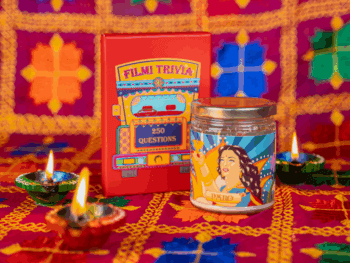
International Day Of The Girl: How Women Of The Sundarbans Are Saving Their Girls
Lifestyle Oct 11, 2022
Today is International Day Of The Girl, and in that spirit, we focus on the women of Sundarbans of India. Located in South Bengal, the Sundarban area which hosts a vast mangrove forest has also suffered the worst of climate change. These women of the area are taking it upon themselves to tackle climate change (through maintenance of the forest) as well as addressing child marriages and domestic violence. With such societal issues stemming from poverty, these women are taking the lead in ensuring that their girls are on a more positive path.
On October 11, the world comes together to recognize the International Day of the Girl (IDG) and highlight issues girls are facing. This year is particularly special as it marks a decade since the day was first honoured.
Around the world, initiatives and awareness campaigns take place to advocate on behalf of young women. And this year, we would like to do our part by exploring how the women in the Sundarbans on Sagar Island in India are working hard to save, not only their homes but their girls.
What’s The Problem?
Speaking generally, in India, child marriages are very common for young girls. In fact, UNICEF explains that “…each year, at least 1.5 million girls under 18 get married in India.” Getting married at such a tender age can put these children in danger as they face a “…high risk of violence, exploitation, and abuse,” they noted.

On Sagar Island, when you mix in the natural disasters they’ve continuously faced, the risk to the girls in the community has increased substantially.
However, after cyclone Aila devastated the area in 2009, many people (from the population of 200K+) relocated to urban areas as it became harder to re-establish businesses due to the unstable environment. Then, the pandemic happened in 2020 and those same people had to return home as their employers had to let them go. Unfortunately, Al Jazeera reports that when they returned back home “another super cyclone, Amphan, ravaged Sundarbans in May 2020, killing more than 100 people.”
Needless to say, the latest natural disasters have impacted the Sundarbans area numerous ways, including “environmental degradation” and poverty. While many people have been affected by these factors, young girls in the area appear to bear the brunt of the weight and seem to be the only solution many families can find.
That said, while many families were already struggling financially after the most recent cyclone hit and the lockdowns were implemented, they could not revive their businesses. People in the area simply did not have money.
The lockdowns forced people to stay at home, which meant that they could not go into the forest to forage for honey. As well, Firstpost expounds that not only did “…the villagers lost access to almost all their sources of food supply,” but they were also unable to bring in income from completing “…agricultural jobs” or selling goods as “…there was no way to move around to reach a market.”
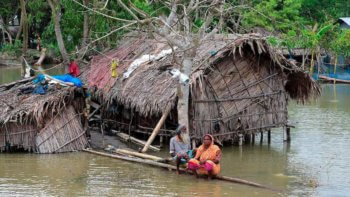
Child Marriages
The fact is, poverty affects females differently, especially young girls, as they are more vulnerable and at greater risk of “…child marriages, trafficking and domestic violence,” describes Al Jazeera.
In the Sundarbans, the economic downturn has been exacerbated due to the lengthy line of storms due to climate change, rising sea levels, and the loss of farmland. This dire economic situation left some families with no other choice but to marry off their underage daughters to decrease the number of mouths they have to feed at home.
Access to education was already difficult for some children as there are costs associated. However, when schools were shut down due to the pandemic, the lack of access to online education due to financial constraints seems to have limited girls from being able to seek out an education even further.

This kept young girls in the home where, as previously described, they were unfortunately viewed as more of a burden to take care of. Seeing the situation, those seeking child marriages for a variety of purposes, such as trafficking, took advantage of the dire straits that families were in. For example, previously “…four-five cases of child marriages were reported in the region every month, that number has gone up to eight to 10 since the pandemic,” exclaims Al Jazeera.
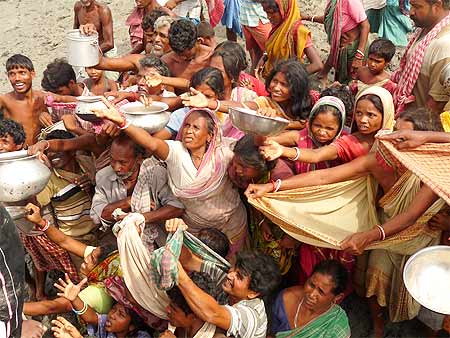
What’s Next?
The situation in the Sundarbans appears to be bleak as the livelihoods of the population are deteriorating due to climate change. However, women in the Sundarbans have taken it upon themselves to lead the charge to save their homes by planting mangroves, which will help to relieve the issue of the increasing water levels. Cool Hunting reports that approximately “…15,000 women” are participating in this initiative, which is incredibly difficult and dangerous as they “…wade through snakes, thorns and biting snails” to get the mangroves in the ground.
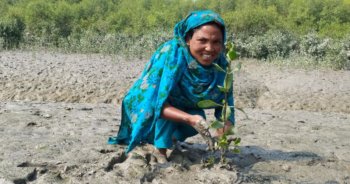
More than that, the women planting the mangroves are saving young girls in the Sundarbans as these plants will help to protect the area from further degradation. These efforts will hopefully allow people to revive their businesses, thereby reigniting the economy, reducing poverty in the area, and decreasing the precarious situations young girls are being placed in.
In addition, to reduce child marriages, despite the fact that they’re illegal and shouldn’t be happening, to begin with, there are ways to report these occurrences, such as the Childline India Foundation. In 2021, the Childline India Foundation was able to save approximately “…50 girls from child marriages in less than a year after receiving tip-offs,” highlights Al Jazeera. The girls who are rescued from these situations are then taken to “…rehabilitation centres for a minimum of 40 days [where they receive] psychological counselling, vocational training and, if needed, even enrolment in schools,” according to Al Jazeera.
To prevent child marriages from taking place in the future, it’s important that we examine the root causes of the issue: the social and economic factors. For instance, the Childline India Foundation explains that being poor leads parents to believe that they don’t have a choice but to marry off their daughters earlier so that the dowry will be lower than if they wait until the child is older. As well, when families are less fortunate, educating their daughters becomes a lower priority as they are often pulled out of school to help within the household. This has been a growing concern in India for some time and the situation worsened when schools were forced to close in 2020. In fact, TIME reports that approximately “40 percent of 15 to 18-year-old-girls were out of school and among them almost 65 percent were engaged in household work. [That said,] girls who [complete] two hours of housework per day” are “63 percent [likely to graduate from] secondary school.”
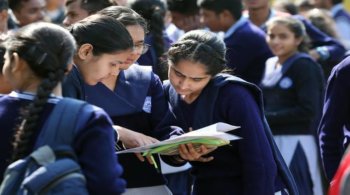
Overcoming the social and economic limitations that force girls into vulnerable situations will be difficult. Economic assistance is required, particularly for lower-income households, which will allow more girls to stay in school and out of the household. As well, education is required to break down the stereotypes surrounding gender roles, along with helping people to understand why marriage should not take place before a certain age. Dismantling these age-old beliefs will be essential when it comes to empowering future generations of young women.
Education plays a crucial role in helping girls to break the cycle of poverty and unemployment. With that in mind, following the pandemic, many schools are also reaching out to girls who are no longer attending classes in an effort to bring them back, which will be helpful in enabling them with the tools needed to reclaim their autonomy. To encourage girls, in particular, to get caught up and to stay in school after so much time away from the classroom, some areas have opened pathshalas, where students receive extra lessons for free, explains India Express.
That said, we applaud the efforts of the women in the Sundarbans as they take the initiative to save their homes and future generations of women to come.
Main Image Photo Credit: www.news.mongabay.com
Devika Goberdhan | Fashion Editor
Author
Devika (@goberdhan.devika) is an MA graduate who specialized in Political Science at York University. Her passion and research throughout her graduate studies pushed her to learn about and unpack hot button issues. Thus, since starting at ANOKHI in 2016, she has written extensively about many challe...
























































